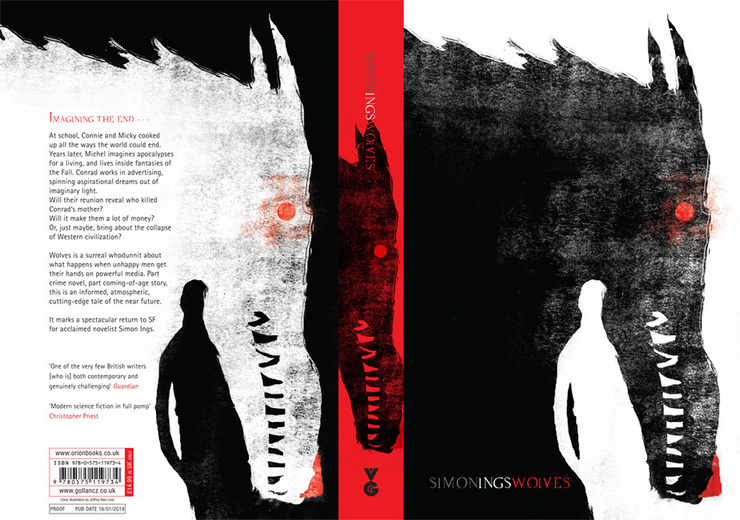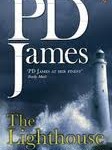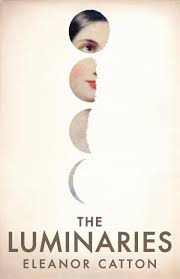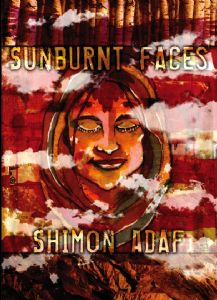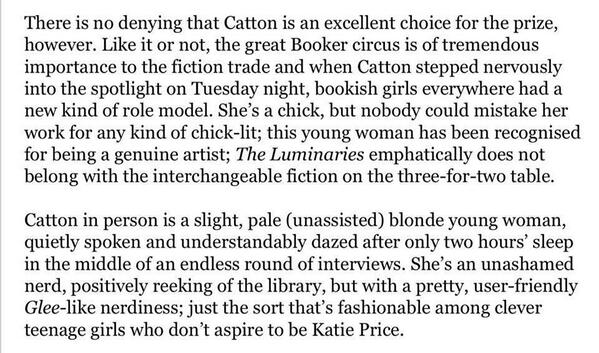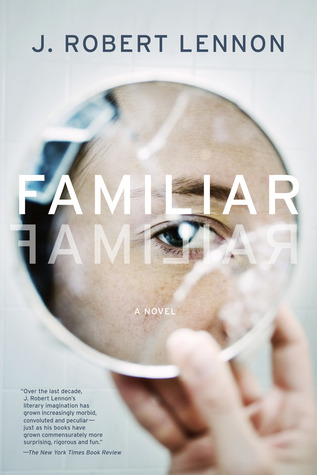Cataveiro by E. J. Swift
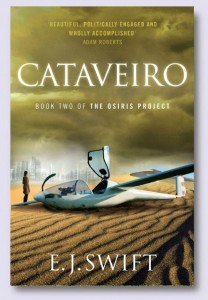 On a forgotten day some time between two hundred and three hundred years ago, the musician Juliana Cataveiro pulled her daughter’s limp body from a street flooded with the South Atlantic and carried her home through a hurricane. The storms raged for three days. During that time, Juliana sat in the attic of her home with her daughter and sang to her. On the first day, the South Atlantic plucked things from houses and bore them down the streets in strange, floating processions. On the second day, the wind took the roof off Juliana’s house. She dared it to take the body of her child and it did not. The child turned blue and cold. When the rain ceased and the sea fell flat and glimmered as if it had never stirred, never mind drowned souls in their hundreds, Juliana Cataveiro burned her daughter, put the ashes in a tin and her guitar on her back and came south, which was the only way to go. (Cataveiro p107)
On a forgotten day some time between two hundred and three hundred years ago, the musician Juliana Cataveiro pulled her daughter’s limp body from a street flooded with the South Atlantic and carried her home through a hurricane. The storms raged for three days. During that time, Juliana sat in the attic of her home with her daughter and sang to her. On the first day, the South Atlantic plucked things from houses and bore them down the streets in strange, floating processions. On the second day, the wind took the roof off Juliana’s house. She dared it to take the body of her child and it did not. The child turned blue and cold. When the rain ceased and the sea fell flat and glimmered as if it had never stirred, never mind drowned souls in their hundreds, Juliana Cataveiro burned her daughter, put the ashes in a tin and her guitar on her back and came south, which was the only way to go. (Cataveiro p107)
While it may be true that everybody has a book in them, what proves your mettle as a writer is how you handle that difficult second novel.
It’s often said of first novels that they rely too heavily on autobiography. You know the kind of thing – stories of teenage angst and dysfunctional families, misfit loners finding themselves in the big city and naive ingenues falling in with the wrong kind of company amidst the dreaming spires all remain popular subjects among debut novelists. There’s nothing wrong with these subjects per se – their very universality makes them readily accessible and often compelling. But with so many pre-existing novels in the same vein, it becomes increasingly difficult for the aspiring novelist to bring anything new or interesting to these timeworn themes.
The first-time SF novelist faces a similar obstacle to originality. While she may not draw so heavily on her own childhood and adolesence, she may find herself tempted – subconsciously or otherwise – to keep the books and stories she read and reread during those formative years too close to hand. It was these novels that inspired her to become a writer, after all. Who would not aspire to creating such magic? And so the derivative cycle of genre fiction continues.
The most positive attribute of E. J. Swift’s debut novel Osiris was undoubtedly the writing. The book possessed a stylistic assurance that takes many writers two or three novels to come close to mastering. Its finely tuned lyricism, gentle but persuasive, demonstrated that Swift is an author who takes her craft seriously and to whom language is of central importance. Reading Osiris, you were left in no doubt that you were in the presence of a sensitive artist at work, and certain scenes – the opening execution scene in particular – continued to resonate long after the story itself had been concluded.
For me though, the story itself had problems that became impossible to ignore. I’d read it all before, basically: spoiled little rich girl meets poor revolutionary boy and gradually becomes alive to the horrifying injustices inherent in the system that supports her. Girl goes against corrupt and decadent family to fight the system alongside boy. Regime is challenged, calamity ensues. An overcautious structure also results in a serious pacing issue – as information is needlessly repeated, any sense of urgency is lost. The end product winds up somewhat stodgy and a tadge overcooked.
Swift finished the manuscript of Osiris soon after completing an MA in Creative Writing. There was then a delay of some years while the author found first the right agent and then the right publisher – problems every writer gets to know about, sooner or later, but that inevitably result in some level of authorial dissociation. The writer moves on, tries new things, starts a new novel. By the time that first book comes out, there is every risk that it will feel like old material. In spite of admiring the novel’s ambition and being impressed by the Swift’s evident feel for language and imagery, I could never escape the sense that in terms of its overall concept, Osiris was not original enough to stand out from all the other, similar debuts that had gone before it.
Swift’s follow-up, Cataveiro, is a whole different story. In terms of its plot, those rather predictable black-and-white certainties are gone, replaced by a world of swarming ambiguities. The pacing issues have been solved, as the action flows effortlessly forward in a series of cleverly constructed intertwining stories. Osiris‘s jejune lovers make way for nuanced, individually defined characters whose motives and drives range over a broad canvas of possibilities. Most gratifying of all, the standard dystopian set-up has given way to a compellingly drawn post-collapse world that feels scorchingly real and virtually limitless in its horizons. This is a very human book, a boldly compassionate book, a novel bulging with important questions about our own world which cannot fail to engage the sympathy and imagination of the reader. I try to avoid the term worlduilding wherever possible, but I have to concede that I found the worldbuiding in Cataveiro to be a thing of great beauty: both robust and poetical and – that word again – enviably assured.
Cataveiro is cunningly conceived to work as a standalone. Although the action takes place shortly after the events of Osiris, you don’t need to have read Osiris to make sense of it. Defying the laws of trilogy, Swift has created a work that issues naturally from of the events of her first novel and yet dispenses with all but one of that novel’s main characters. There are no tedious recaps, no desperate striving for continuity. Instead there is a whole new story, with Osiris nestled within that story as an integral yet unobtrusive part.
Swift’s writing also shows increasing maturity. There is a tactile quality, a perfume, an innate sensitivity to Swift’s control of language that both echoes and builds upon everything that proved most satisfying in the first book. There are no dull sentences. Swift’s interest in her characters and her story shines throughout the novel’s entire length. There are passages in Cataveiro that approach radiance. There is nothing so gratifying as watching a talented writer begin to fulfil her promise, and such solid development from one book to the next is a pleasure to see. I have the feeling though that Swift is only beginning to flex her muscles here. Should she choose – and I’m sure she will – to experiment still further with form, to stretch the boundaries of the genre in which she works, to break entirely free of the particular set of reader expectations that trilogy-writing inevitably entails, then I think she could be not just very good but seriously brilliant.
